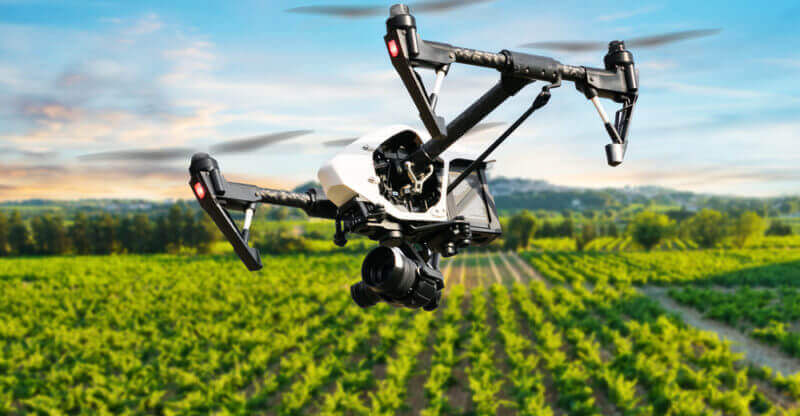Drones are emerging as valuable tools for outdoor cannabis cultivators
The sustainability of cannabis cultivation could be enhanced by drone technology.
This is according to agricultural drone manufacturers, many of whom believe that they can provide cannabis/hemp cultivators with an environmentally sustainable and economic solution for yielding high quality crops.
In particular, drones can be relied on to maintain operations at outdoor cannabis cultivation sites. These unique pieces of technology make it possible for farmers to enhance task performance and consistency, as well as reduce the outgoings associated with manual field labor.
Consequently, drones for cannabis cultivation may help to relieve financial burdens, all the while amplifying the quality and volume of plants grown in outdoor environments.
What are the main benefits of drones for cannabis cultivation?
Examples of some applications that can be harnessed from drones for cannabis cultivation include precise seed sowing, land scouting, land photography, land surveying, pest control and fertilizer application products.
Considering the broad spectrum of ways in which drones can be implemented for maximum cannabis cultivation output, it goes without saying that farmers stand to reap the rewards of using such gadgets.
Some of the major perks associated with drones for cannabis cultivation include:
- Reduced Carbon – Removing carbon dioxide from the atmosphere is a necessity for most cannabis farmers, since sequestration methods can help to mitigate problems associated with pollution and climate change. Researchers believe that drones can reduce our carbon footprint and, when introduced to cannabis cultivation, agricultural workers can even receive a carbon credit for adjusting their farming practices.
- Live Precision Application – So intelligent is the drone technology of today that these tools can even be relied on to apply live biological control agents. Salinas, California-based drone developer, Parabug, is a prime example. This company focuses on making drones that are capable of applying pest control agents with the utmost precision.
- Ability to Work During Off-peak Hours – Spraying pest control products onto cannabis plants is viral for ensuring that quality is not compromised. However, hiring farmers to work at odd hours can be costly and inconvenient. Enter drone technology, which can be utilized during off-peak hours to identify feral pests, all the while ensuring that “good insects” like bees and ladybugs remain unharmed.
- Long-Term Money Savings – Having the opportunity to maximize resources and time means that cannabis producers can benefit from overall labor savings; still having enough money left over to invest in company upgrades. Moreover, unlike conventional equipment, drones can minimize soil compaction. Ultimately, this means improved drainage and water infiltration, thus resulting in higher yields.
Coronavirus pandemic is stimulating interest in drones for cannabis cultivation
As demand for cannabis has increased over the years, drone companies have metamorphosed. This type of precision agriculture has become ever more apparent since the coronavirus pandemic began last year.
Drones do not emit “diesel emissions, greenhouse-gas emissions, and they reduce soil compression,” says the founder of The Drone Farmers in Denver, Derrick Perkins.
Perkins told reporters that demand for the plant has surged amid the coronavirus (COVID-19) pandemic; mainly due to harsh travel restrictions that have resulted in adjusted buying behaviors.
Initially, his company was founded with the aim of providing aerial photography services to clients. Since its inception five years ago, it has expanded to serve the ever-evolving global cannabis market, which is estimated to be worth $130 billion by 2029.
Now, amid the rise of legal weed, companies can benefit from aerial pesticide application and crop surveys — a service designed to accurately assess planting soil health.
Before harnessing the power of drones for cannabis cultivation, consider the value of your crop, as well as how long you plan on using the device and how many acres you will designate for cannabis cultivation.








